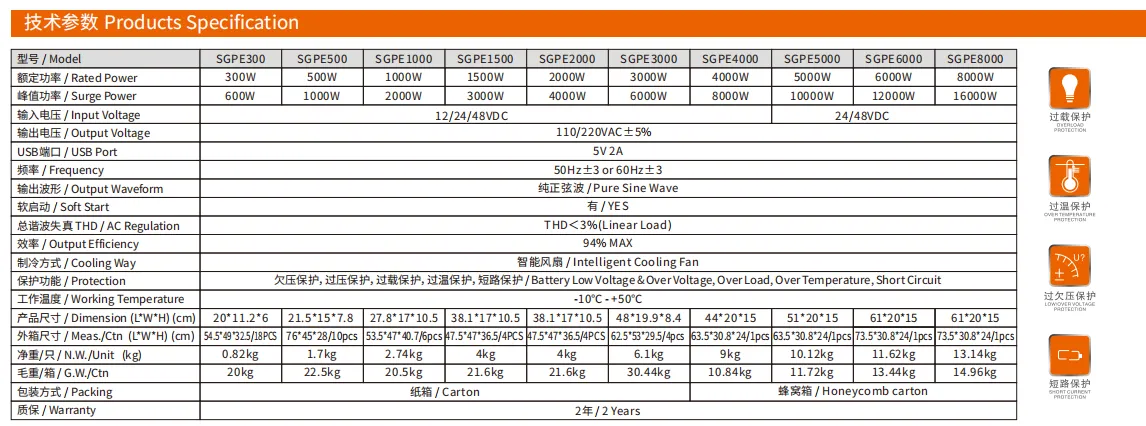100w solar panel dimensions
Understanding the Dimensions of 100W Solar Panels
Solar energy has become a cornerstone in the shift towards sustainable energy solutions. Among the various options available, 100W solar panels are increasingly popular due to their practicality, efficiency, and versatility. In this article, we will explore the dimensions of these solar panels and discuss their applications, benefits, and considerations when integrating them into your energy solutions.
Dimensions of 100W Solar Panels
The physical dimensions of 100W solar panels can vary slightly depending on the manufacturer and the technological advancements utilized in the solar cells. However, most 100W solar panels typically measure around 47 inches (about 120 cm) in length and 21 inches (about 53 cm) in width. The thickness also plays a role in the design, usually ranging between 1.5 to 2.0 inches (approximately 4 to 5 cm).
These dimensions allow the panels to be compact enough for various applications while still housing a sufficient number of solar cells to generate the desired power output. The standard configuration consists of 36 cells, arranged in a way that maximizes sunlight absorption and ensures efficient energy conversion.
Applications of 100W Solar Panels
100W solar panels are remarkably versatile and can be utilized in numerous applications. They are ideal for residential use, especially for small energy needs like powering outdoor lights, garden fountains, or small electronic devices. Their size and output make them suitable for off-grid systems, where larger panels may not be practical.
Furthermore, these panels are often employed in RVs, boats, and tiny homes. Their compact dimensions allow easy installation on rooftops or other surfaces without requiring significant structural alterations. In addition, 100W solar panels can be combined in arrays to meet larger energy demands for households or commercial uses.
Benefits of 100W Solar Panels
100w solar panel dimensions

One of the primary advantages of 100W solar panels is their affordability. They are generally less expensive than larger panels, making them an accessible option for individuals looking to dip their toes into solar energy. Additionally, due to their smaller size, they are easier to handle and install, even for DIY enthusiasts.
Energy efficiency is another critical benefit. Even though they are smaller, modern 100W solar panels utilize high-efficiency solar cells that can convert sunlight into electricity more effectively than older models. This efficiency allows users to generate a significant amount of energy over time, reducing their reliance on grid power and lowering utility bills.
Moreover, 100W solar panels contribute to a reduced carbon footprint. By harnessing the sun's energy, users contribute to a more sustainable energy future and help combat climate change.
Considerations When Choosing 100W Solar Panels
When selecting 100W solar panels, it's crucial to consider a few factors. Firstly, the quality of the solar cells and the manufacturer's reputation should be assessed to ensure longevity and efficiency. Warranty periods can also provide insight into the panel's expected lifespan and reliability.
Moreover, evaluating the installation process is essential. Depending on the intended application, you may need mounting hardware, charge controllers, or batteries, which can add to the overall cost.
Lastly, users should consider their energy needs. While a 100W panel is a fantastic solution for many small-scale applications, larger energy requirements may necessitate multiple panels or larger systems.
Conclusion
In summary, 100W solar panels are an excellent option for those seeking to incorporate solar energy into their lives. Their compact dimensions, versatility, and efficiency make them suitable for various applications, from residential use to mobile energy solutions. By understanding their dimensions and benefits, consumers can make informed decisions, paving the way towards a more sustainable future. As solar technology continues to evolve, the opportunities for harnessing clean energy will only expand, highlighting the importance of considering solar options in our energy consumption strategies.
-
Navigating Off Grid Solar Inverter: From Use Cases to Trusted PartnersNewsAug.05,2025
-
Solar Edge String Inverter: A Wholesaler’s Guide to Inverter Technology SelectionNewsAug.05,2025
-
Microinverters: Revolutionizing Solar Energy UseNewsAug.05,2025
-
Future of Monocrystalline Solar Panel Efficiency: Latest Technological AdvancesNewsAug.05,2025
-
Solar Panels for House: A Complete Guide to Residential Solar EnergyNewsAug.05,2025
-
Panel Bifacial Performance in Snow and Low-Light ConditionsNewsAug.05,2025







